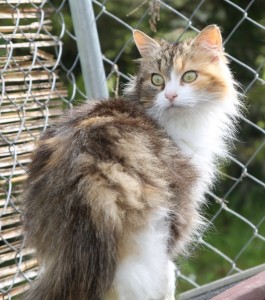 EU Dog & Cat Alliance finalises position on international rehoming
EU Dog & Cat Alliance finalises position on international rehoming
International rehoming of dogs and cats should not be carried out as a standard practice EU Cat & Dog Alliance member organisations have agreed this week. Instead members will work preventatively in the country of origin to minimise the need for rehoming animals abroad, for example through neutering and educational campaigns.
Simona Lipstaite, European Policy Advisor for the EU Dog & Cat Alliance, comments:
“International rehoming of dogs and cats is a practice which is not sustainable in the long term as it only provides interim measures rather than addressing the root causes of companion animals living in shelters or being homeless in the country of origin. It also presents the risk of spreading diseases across borders and introducing new diseases into different countries. The main diseases under consideration are rabies, Echinococcus multilocularis, leishmaniosis, babesiosis, dirofilaria and ehrlichiosis and, in the case of cats, retroviruses.”
International rehoming presents further issues in relation to cats. Being much more territorial than dogs, cats inevitably suffer a huge amount of stress during transport. Cats take a long time to acclimatise to a new environment and some may never recover from the stress of being moved internationally.
Where international rehoming is unavoidable, members have agreed that there must be full traceability and that the rehoming is solely in the best interests of the animal, and not for monetary gain for the organisation. Member organisations must also do it legally and following proper disease testing procedures.
ENDS
Notes to Editors:
Since 2014 The EU Dog &Cat Alliance has been a leading European expert on companion animal welfare, encompassing almost 60 organisations from over 20 member states, and has been working within the EU on issues relating to animal welfare, having carried out national research into identification and registration in all 28 EU member states. The Alliance looks forward to constructively working with the European Commission on compatible systems of identification and registration to be accessible across the EU to improve not just the welfare of dogs and cats in the EU, but also human health through helping to prevent the spread of zoonoses, ensure consumer protection, and deal a blow to one of the profitable trafficking sectors in the Union – the illegal importation of dogs and cats.
For further information please contact:
Simona Lipstaite, EU Dog & Cat Alliance European Policy Advisor +44 20 7833 7888 [email protected]




